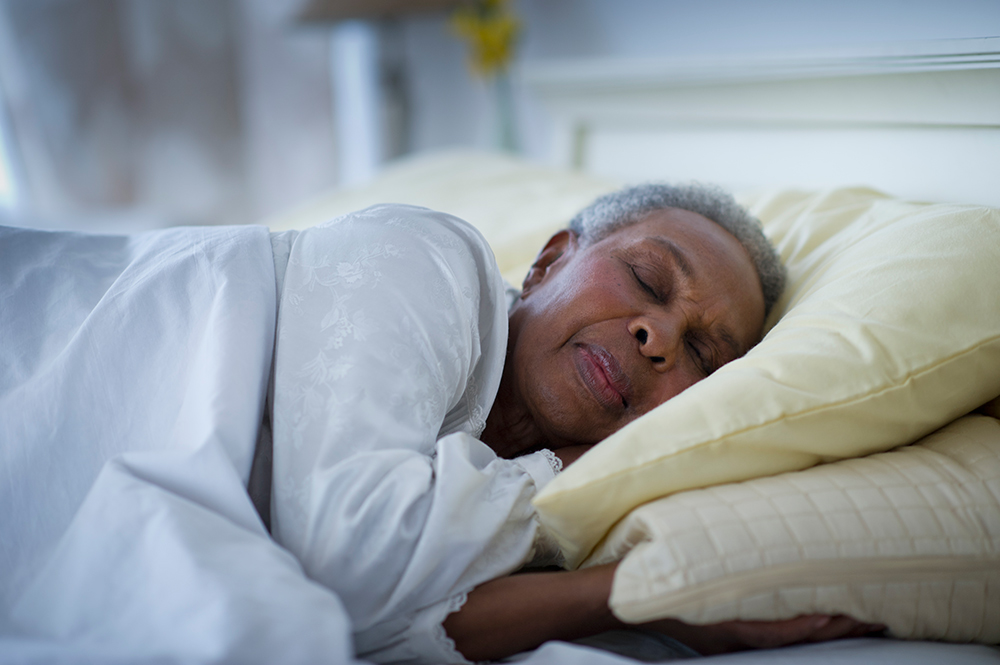
If you are finding you are routinely waking up earlier in the morning, there may be good reason. As we age, our bodies change, which is a major factor behind the fluctuations in sleep patterns that often come later in life.
Like other aspects of our physical and mental health, the brain becomes less efficient as we age. Social and environment inputs such as time of sunset, exposure to sunlight, mealtimes, and physical activity help regulate our circadian rhythm. This 24-hour cycle/rhythm influences the physical, mental, and behavioral changes we experience throughout the day. Although light and darkness are the primary factors affecting our circadian rhythm, other elements such as diet, stress, physical activity, our social environment, and temperature also play a role.
For a younger person, evening routines like dinner time signal the brain that bedtime is near. For someone older, these cues become less distinct as the nerves that transmit these time cues have deteriorated. This is part of the reason older people feel tired before their children or grandchildren, leading them to go to bed earlier and therefore wake up earlier.
The light our eyes take in plays a role as well. Vision changes that come with age reduce the intensity of light stimulation that our brain receives, which plays an important role in ‘setting’ our circadian clock. This is especially true for people with cataracts, a common eye condition that causes blurred and double vision, significantly reducing light penetration. This might cause the brain to think sunset is occurring earlier, prompting a premature release of melatonin, the hormone that regulates sleep. As a result, those with vision impairments like cataracts may feel tired earlier in the evening, leading to an earlier sleep-rise time. Wow – what a cycle!
What can we do to get the sleep we need when we need it?
There is some evidence that cataract removal surgery may improve sleep quality by helping those light cues get through. If you struggle with this issue, you could experiment with exposing yourself to bright light in the evening. You could go for a walk outside before the sun sets, read a book on a bright iPad, get artificial lights for your home, or watch TV on a bright screen. These bright lights will tell the brain that the sun hasn’t set yet, which will hold the melatonin production at bay. To help yourself stay up a little later (and sleep in a little) you should try these techniques 30 to 60 minutes before sunset.
Thomas Rajan, MD, physician, Pulmonary and Critical Care, Northern Light Eastern Maine Medical Center, recommends a few additional actions you can take: “It’s smart to avoid alcohol before bed, exercise can lead to a better night’s sleep, and the morning sun can help your circadian clock follow the sun’s rise and set cues. So, throw open those blinds in the morning!”
He says, “All in all, changes in sleep patterns are a part of life. While some of these factors are out of our control, you can counteract them with healthy habits so you can get your best rest.”
Visit our Sleep Diagnostics page for more information.
Please share this article with anyone who may benefit from these important tips.